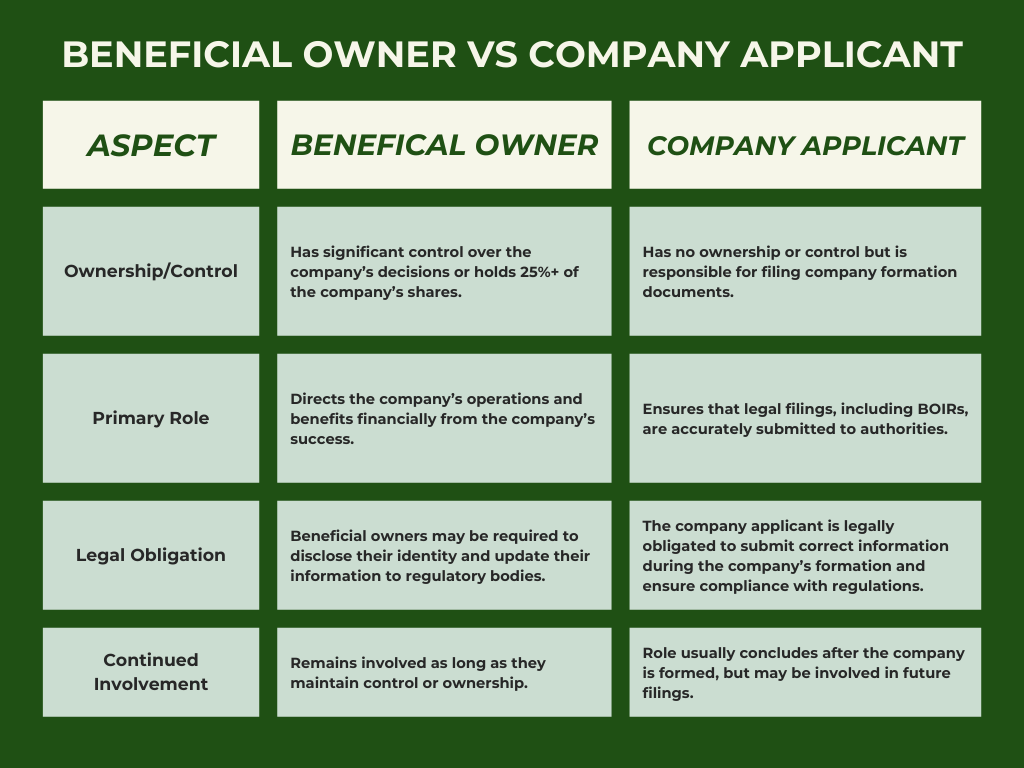When it comes to Beneficial Ownership Information Reporting (BOIR), understanding the difference between a beneficial owner and a company applicant is crucial. As a Business owner, CPA, bookkeeper, or legal professional, ensuring compliance with the Corporate Transparency Act (CTA) and other regulatory requirements can be a challenge without clear definitions. In this article, we break down these roles to help you better navigate the reporting requirements for you or your clients.
Who is a Beneficial Owner?
A beneficial owner is the individual who ultimately controls, owns, or benefits from a company, even if they are not listed as the legal owner. This person exercises significant control over the company’s decisions, operations, or financial assets. Most jurisdictions define a beneficial owner as anyone who owns 25% or more of a company’s equity or voting rights or who otherwise exercises substantial influence over the company.
The key point here is control. The beneficial owner might not be the person on the incorporation documents, but they call the shots behind the scenes. For instance, someone might hold shares through a nominee or trust, yet still be the ultimate decision-maker.
Identifying the beneficial owner is essential for regulatory compliance, particularly in Anti-Money Laundering (AML) and Know Your Client (KYC) processes. By ensuring transparency, beneficial ownership reporting helps authorities like FinCEN combat illicit activities like tax evasion, money laundering, and terrorist financing.
Who is a Company Applicant?
On the other hand, the company applicant plays a different but equally important role. The company applicant is the person responsible for submitting the necessary formation documents to the secretary of state when the company was established. In other words, the company applicant is the first point of contact for filing the company’s official paperwork.
Typically, the company applicant is a professional assisting with company formation. This could be a lawyer, accountant, or company formation agent. Their job is to ensure that the legal documents are accurate and submitted in compliance with local regulations. Although they facilitate the process, the company applicant does not usually hold any ownership or control over the company itself.
While the company applicant’s role may end after the company is successfully formed, they are crucial in ensuring that the beneficial ownership information is reported correctly. This helps reduce legal risks for both the company and the applicant.
Key Differences Between Beneficial Owners and Company Applicants
Understanding the distinction between these two roles is vital for compliance professionals:
![[object Object]](https://umsousercontent.com/lib_oGPegMrabyGMZISx/nbzg7nzv9wewqh0s.png?w=400)
